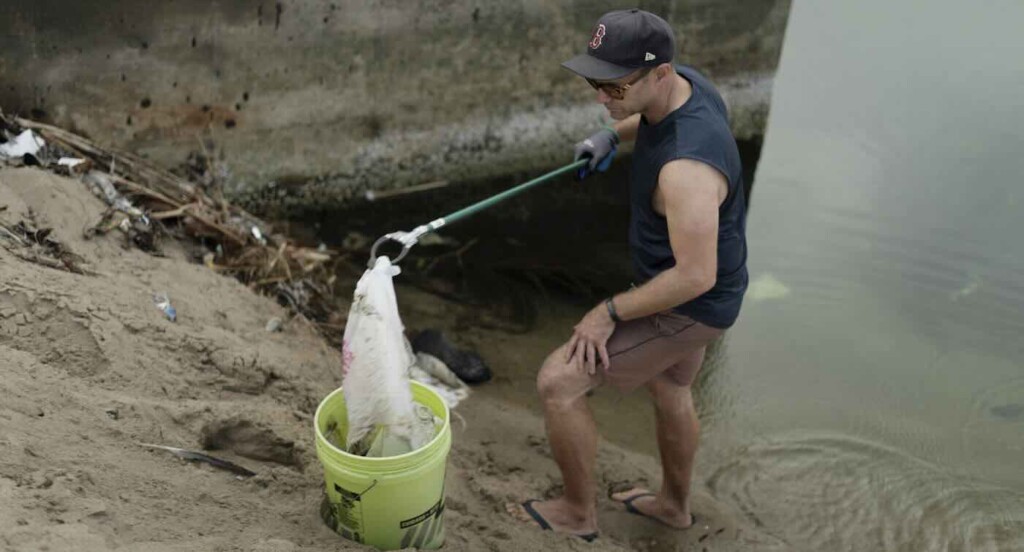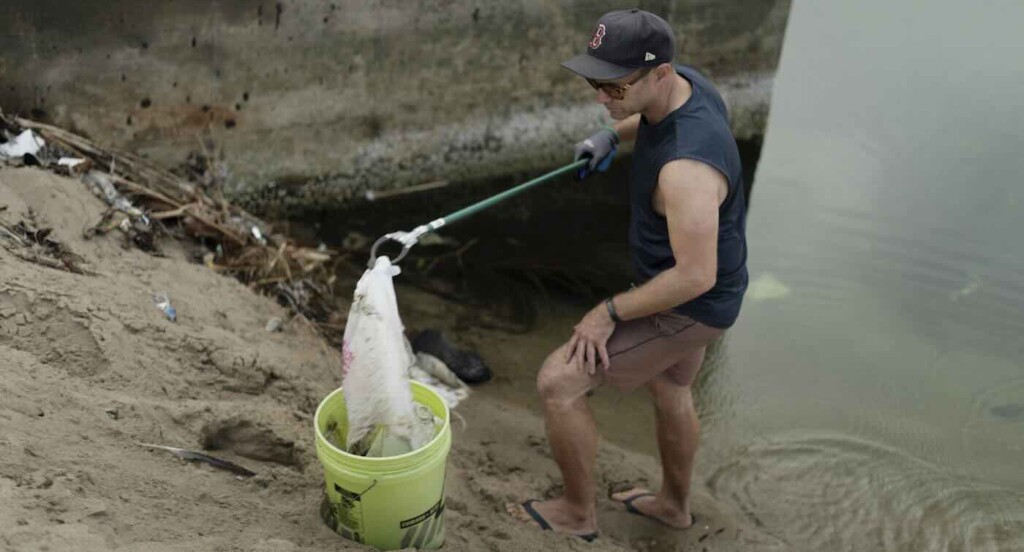Plastic Bag Bans in the U.S. Linked to Nearly 50% Drop in Shoreline Litter, Landmark Study Finds.
For decades, plastic bags have been among the most stubborn and damaging forms of litter in the ocean. Light enough to blow into waterways and durable enough to survive for years, they entangle birds and marine life, choke sea turtles, and break down into harmful microplastics. But now, new research shows that targeted policies — bans and fees — are making a measurable difference, and on a scale scientists didn’t fully expect.

According to a comprehensive study conducted by researchers at the University of Delaware and Columbia University, the introduction of plastic bag bans or fees across the United States has led to a 47% drop in litter along coastlines and beaches. Even more encouraging, the decline in shoreline litter increased over time, with no signs of returning to pre-ban levels.
More than 100 countries have introduced similar measures in recent years, but until now, there had been no large-scale evaluation of how those policies directly affected marine litter. The new study, published in the journal Science, is the first to combine hundreds of local and state policies with tens of thousands of actual shoreline clean-up records to assess their real-world impact.
The idea began when study co-author Professor Kimberly Oremus learned that coastal clean-up volunteers in Delaware were using the “Clean Swell” mobile app to log every piece of trash collected. The app’s data is fed into the Ocean Conservancy’s TIDES (Trash Information and Data for Education and Solutions) database, a massive global record of litter collected during clean-ups.
“When we found the database that had information on different shoreline clean-ups, we realized we could look at the composition of litter before and after a policy to see what effect it had,” said Oremus, who teaches in Delaware’s School of Marine Science and Policy.

From there, the research team compiled more than 600 plastic bag policies enacted between 2007 and 2023 across the U.S., ranging from small-town ordinances to sweeping state laws. The variety allowed them to compare the effectiveness of policies on different scales — something that wouldn’t have been possible in countries with nationwide bans.
Lead author Dr. Anna Papp of Columbia University noted that past research often focused on checkout data from stores to measure bag use, but this study goes further by tracking the actual reduction in environmental litter. “We were excited to add to that a direct measurement of plastic litter on these shorelines,” she said.
The findings were clear: areas with bans or fees saw a 25% to 47% drop in the proportion of plastic bags found during clean-ups compared to areas with no policy. State-level policies tended to produce more significant results than town-level measures, and fees — surprisingly — appeared to reduce litter even more than outright bans. One possible explanation is that fees alter consumer behavior more broadly, while bans sometimes leave loopholes for thicker, reusable plastic bags that can still end up as litter.

Interestingly, the policies were most effective in locations that had higher levels of plastic bag litter to begin with — suggesting that targeted action in problem areas can yield dramatic results.
The study arrives at a pivotal moment. The United Nations Environment Program is set to continue negotiations for a global plastic treaty in August, and the researchers believe their work demonstrates a clear path forward.
“Ours is the first large-scale study to use hundreds of policies and tens of thousands of clean-ups to look at their effects,” Papp said. “Overall, our findings do show that plastic bag policies are broadly effective in limiting litter along shorelines.”
For Professor Oremus, the message is simple: “It’s great to see a policy that works in such a clearly measurable way.” And with roughly one in three Americans now living in areas with some form of plastic bag regulation, the ripple effects of these policies are only just beginning to be felt — both along the U.S. coastline and in the global push to clean up our oceans.




